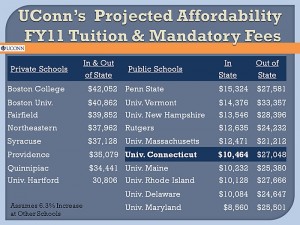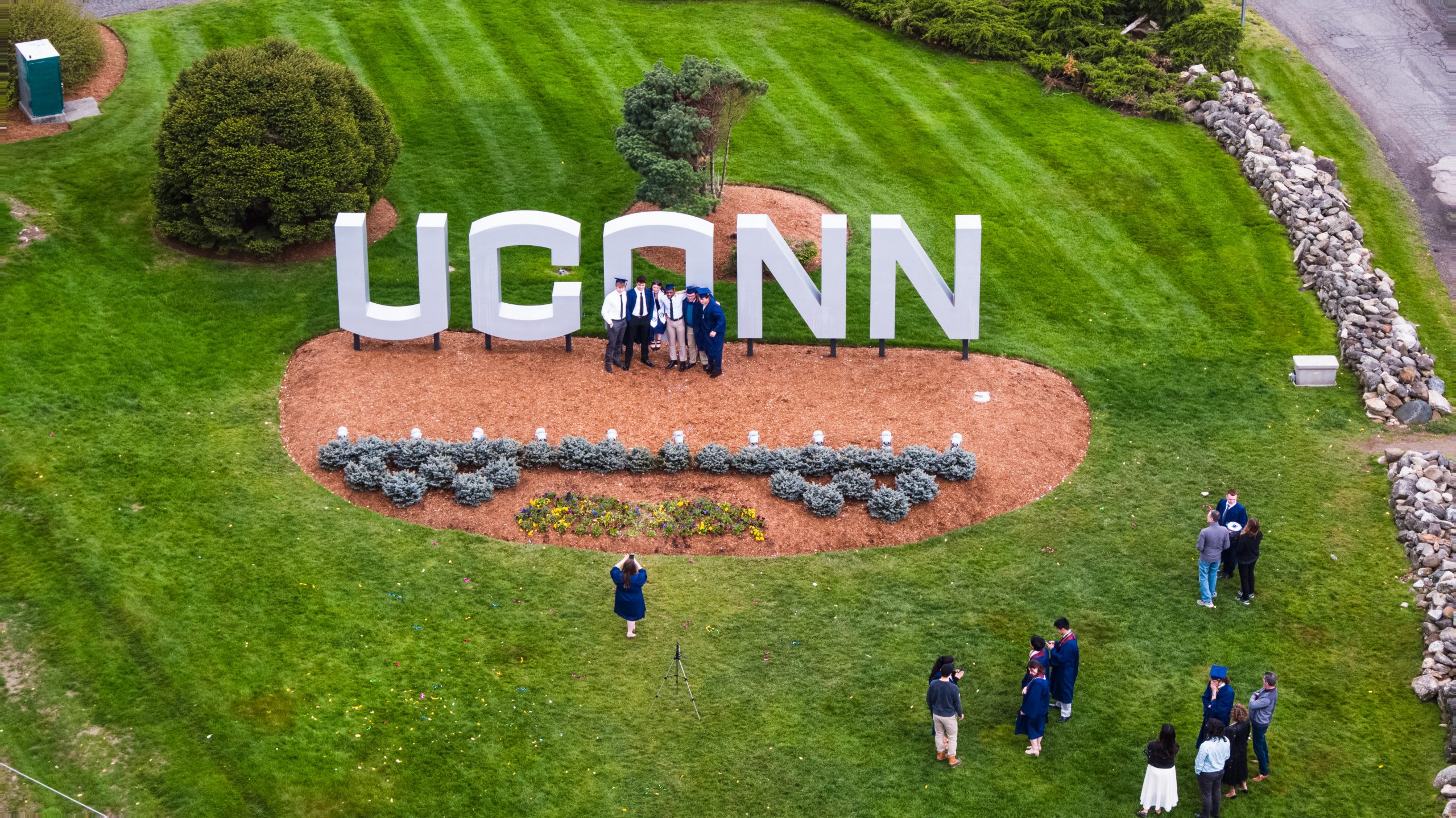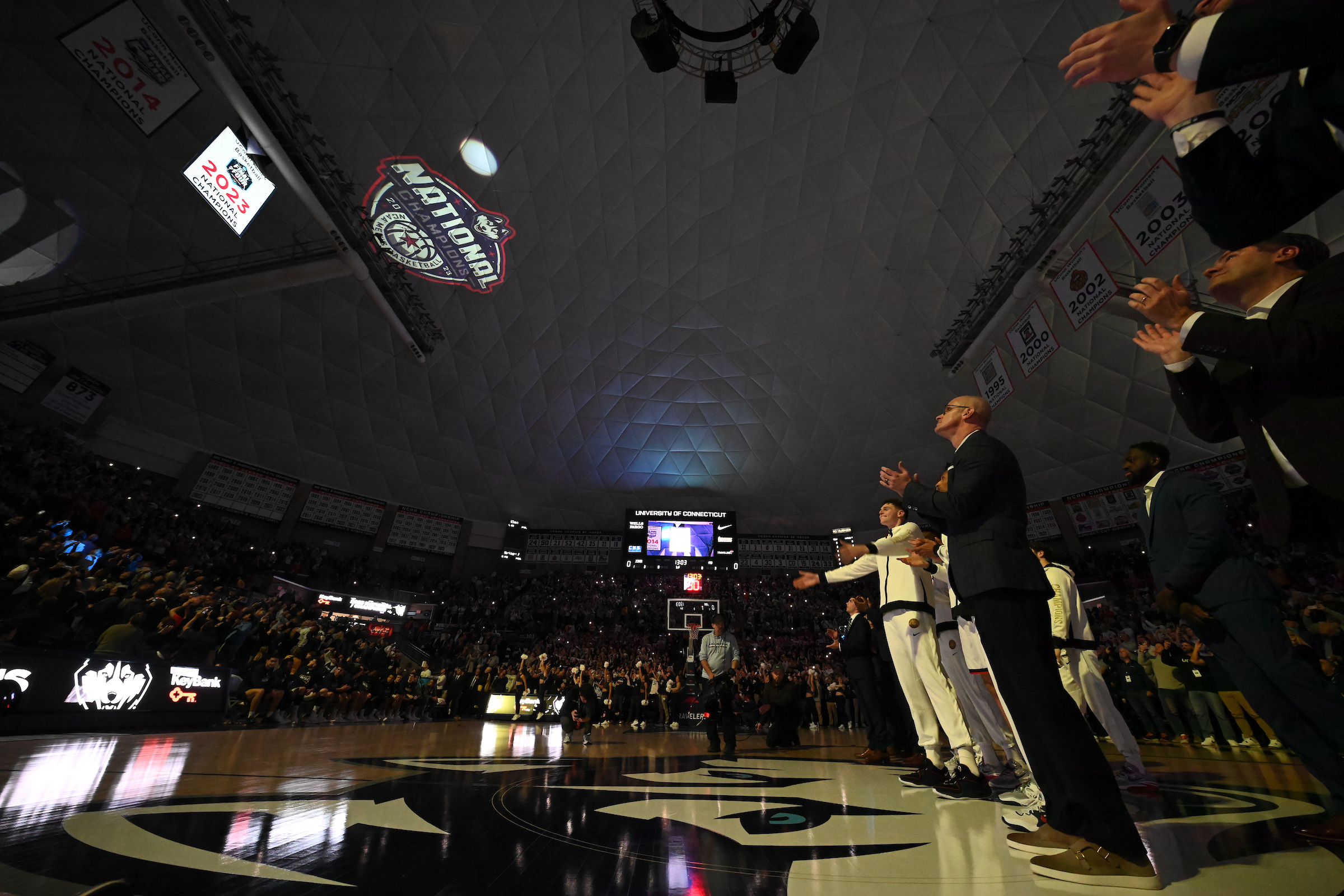The University will recommend to the Board of Trustees during its Feb. 18 meeting that tuition at UConn be increased by 6.3 percent in fiscal year 2011. The administration will also recommend that room and board costs go up by 7 percent and 6 percent respectively. The board is expected to vote on whether or not to raise the rates and by how much.
“UConn has very limited sources of revenue,” says Vice President and Chief Financial Officer Richard Gray. “We have absorbed more than $20 million in budget rescissions in the last two years, a loss of $8 million from our reserves, flat funding from the state, and very little investment income because of the economy, yet we must continue to meet our obligations to students.”
In a year when other public universities throughout the nation are seeing double digit tuition increases of up to 30 percent, administrators say they are working to keep UConn’s tuition increase at a relatively modest level.
“The economic downturn and its effect on state budgets are presenting financial problems for public universities nationwide, not just in Connecticut,” says Gray. “While we will essentially break even in 2011, the budget outlook for 2012 presents far more challenges. This single-digit increase in tuition now will help reduce the need for an even larger increase down the road.”
The possibility of a wider state budget deficit and the expiration of financial protections under the American Recovery and Reinvestment Act (ARRA) are contributing to the concern about the 2012 budget. In order to accept ARRA funding, states were required to fund higher education at flat levels. They are no longer required to do so after 2011.

Gray predicts that UConn’s budget gap could be as large as $20 million or higher in 2012.
In response to the economic downturn and the strain it placed on the state and University budgets, in 2008 UConn organized the Costs, Operations, Revenues and Efficiencies (CORE) task force. The group has so far identified numerous cost-savings measures, $4 million of which have already been implemented. In addition, UConn’s labor bargaining units and non-union managers agreed to a wage freeze last year and a pay cut through mandatory furlough days, as well as other concessions to help the University balance its budget. The University has also kept hiring to a minimum.
“We have done very little hiring in the last two years,” says Gray. “The problem is that when there are not enough faculty to teach courses, it can take longer for students to complete their needed classes because there are fewer sections, making it more difficult for them to graduate in four years.”
Staying an additional semester adds more than $9,000 to the cost of a student’s college education at UConn, says Gray.
Even with a 6.3 percent tuition increase for fiscal year 2011, UConn would still be a competitive academic bargain compared with similar institutions – UConn has the fifth lowest cost among other flagship public universities in the region – and costs significantly less than comparable private schools in the region.
“Fortunately, UConn offers very good financial aid support for students,” says Gray. “And increases in tuition are accompanied by increased financial aid.”
At this point, he adds, all cost-savings options are being considered for 2012.


